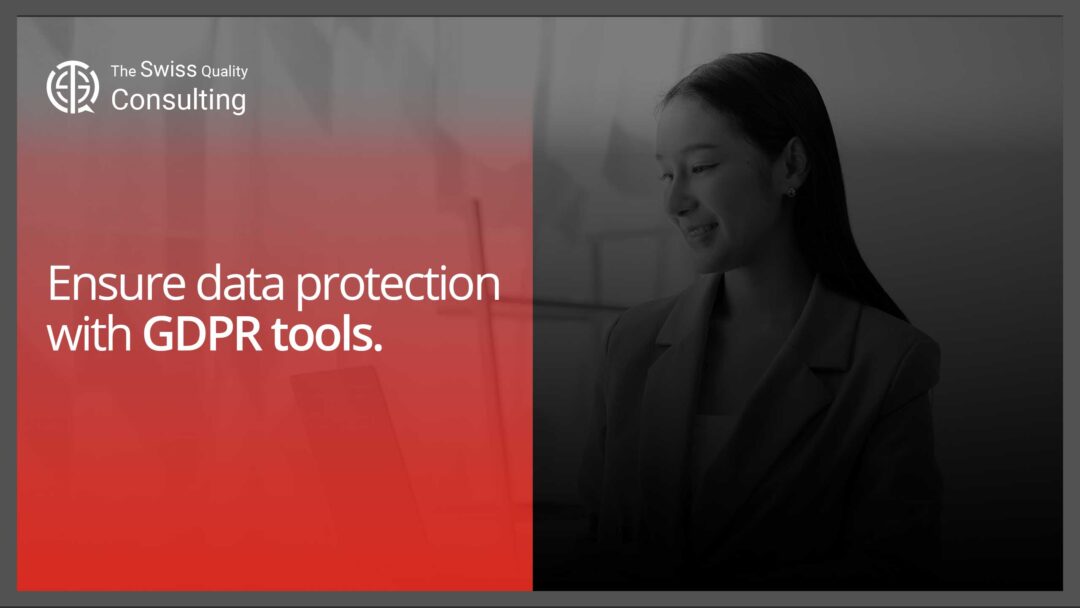Navigating GDPR Data Protection Tools
Introduction
In an era where data privacy is paramount, GDPR data protection tools have become essential for businesses to ensure compliance and safeguard customer information. This article aims to provide business executives, mid-level managers, and entrepreneurs with an overview of the importance of GDPR tools in maintaining data protection and enhancing business integrity.
The Critical Role of GDPR in Business
The General Data Protection Regulation (GDPR) has ushered in a transformative era of data protection and privacy, setting a global benchmark for safeguarding personal information. This comprehensive framework mandates robust data governance practices for organizations that process personal data of individuals within the European Union (EU) and beyond. At the heart of the GDPR lies the principle of “data protection by design and by default,” requiring businesses to embed data protection considerations into the very fabric of their operations from the outset. This proactive approach ensures that personal data is treated with the utmost care, respect, and transparency throughout its lifecycle.
Individuals, under the GDPR, are empowered with enhanced control over their personal information. They have the right to access, rectify, erase, restrict processing, object to processing, and receive data portability. This newfound control over personal data not only safeguards individuals’ privacy but also fosters a culture of trust and accountability between businesses and their customers.
GDPR data protection tools have emerged as indispensable allies for organizations navigating this complex regulatory landscape. These specialized tools encompass a wide range of functionalities, from data discovery and classification to data masking, encryption, and access management. By leveraging these tools, businesses can effectively identify, manage, and protect personal data, ensuring compliance with GDPR requirements and minimizing the risk of data breaches, non-compliance penalties, and reputational damage.
The benefits of embracing GDPR data protection tools extend beyond regulatory compliance; they foster a culture of data stewardship and enhance customer trust. By demonstrating a commitment to responsible data handling practices, organizations can solidify their reputation as trustworthy custodians of personal information, attracting and retaining customers who value their privacy. This commitment to data stewardship also enhances internal accountability, ensuring that data handling practices are consistent with the organization’s core values and ethical principles.
In essence, GDPR data protection tools are not merely compliance mechanisms; they are catalysts for organizational transformation. By embracing these tools, organizations can empower individuals with control over their personal information, safeguard their reputation, and foster a culture of data stewardship that drives long-term growth and success in a data-driven world.
Compliance as a Business Imperative
Adhering to GDPR is not just a legal requirement; it’s a crucial aspect of building trust with customers and stakeholders. GDPR data protection tools facilitate compliance, ensuring businesses operate ethically and transparently.
Role in Change Management
Implementing GDPR data protection tools is a significant component of change management. As data protection laws evolve, businesses must adapt their processes and systems to stay compliant.
Adapting to Regulatory Changes
Change management strategies must include the integration of GDPR tools to ensure a seamless transition to compliant practices, aligning business operations with legal requirements.
Impact on Executive Coaching and Leadership
Leadership is crucial in the effective implementation of GDPR data protection tools. Executive coaching services now emphasize the importance of understanding GDPR and leading teams in implementing compliant practices.
Empowering Leaders with GDPR Knowledge
Through executive coaching, leaders are equipped with the knowledge and skills to navigate GDPR compliance, ensuring they can guide their organizations effectively in data protection.
Effective Communication of GDPR Practices
Effective communication is key to the successful implementation of GDPR practices. Informing and educating employees and customers about GDPR compliance and the tools used is essential for transparency and trust.
Building Confidence through Transparency
Clear communication about GDPR compliance practices and the tools utilized enhances customer confidence and demonstrates a commitment to data protection.
Generative AI in Enhancing GDPR Compliance
Generative Artificial Intelligence (AI) can play a significant role in enhancing GDPR compliance. AI technologies can automate data protection processes, analyze risks, and provide insights for better compliance strategies.
Innovative AI Approaches to Data Protection
Generative AI offers innovative solutions for GDPR compliance, from automated data processing to advanced risk assessment, aiding businesses in maintaining high standards of data protection.
Conclusion
In conclusion, GDPR data protection tools are vital for businesses in today’s data-driven world. They not only ensure compliance with legal standards but also fortify trust with customers, enhancing the overall integrity and success of the business.
#GDPRCompliance, #DataProtection, #BusinessIntegrity, #AIinCompliance, #PrivacyRegulation









